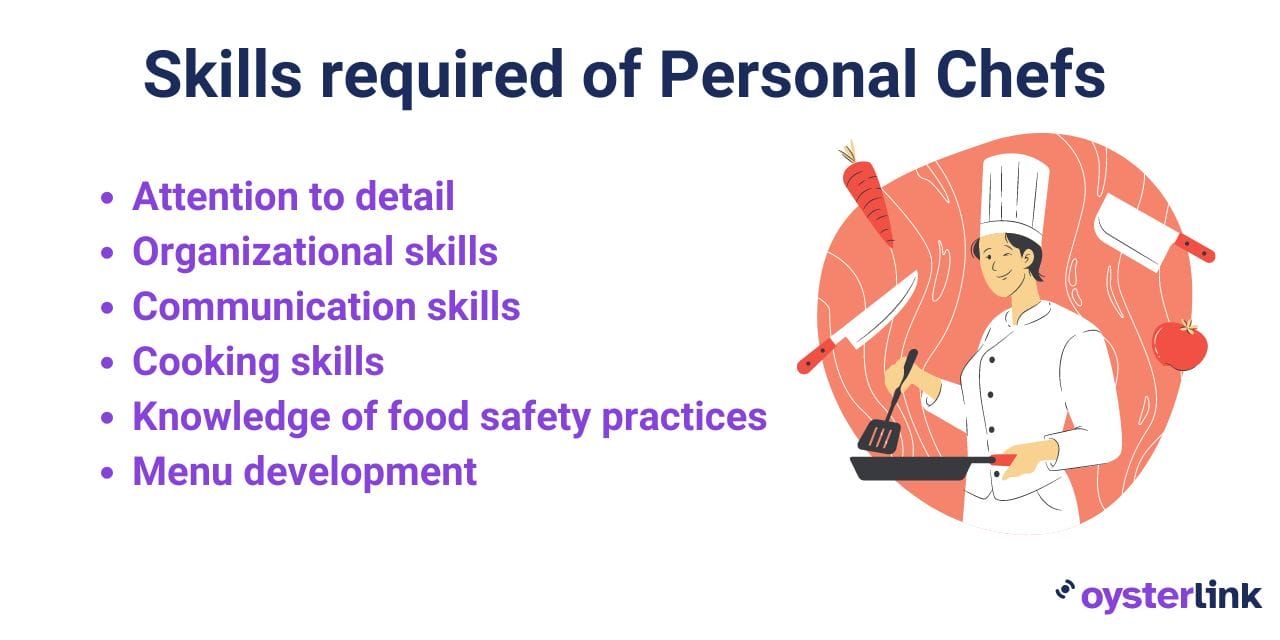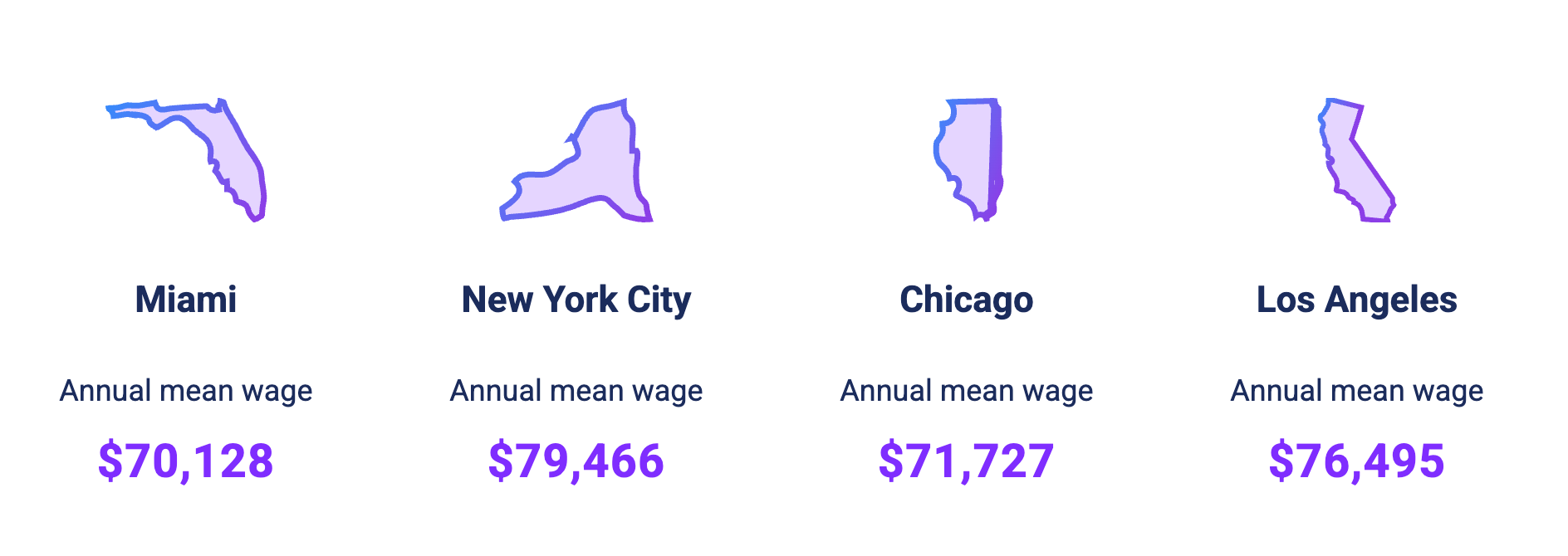Private Chef Job Description
Private Chefs create menus, shop for groceries and prepare meals for multiple clients.
If you're looking for a Private Chef to join your team, we've created a job description you can modify to fit your specific requirements. We've also included tips to help you attract personable candidates who can help you build strong relationships with clients to encourage repeat business.
Note: 'Private Chef' and 'Personal Chef' are often used interchangeably to describe the same position. The nuances between the positions are answered in the FAQ section at the bottom.
Private Chef Job Description Template
You can download our Private Chef job description template below in PDF or Word format as a guideline for creating your own. Feel free to customize the details (such as salary, required experience and specific responsibilities) to match your needs.
Things You Need To Include in Your Private Chef Job Description
When writing job descriptions, it's important to be comprehensive yet concise to manage applicants' expectations.
For example, there are employers who require Private Chefs to follow their own menus and recipes. This is often done in order to help cut costs on ingredients or standardize the taste of each meal. For those who enjoy being creative and developing their own menus and recipes for each client, following an existing menu might not be satisfying.
It's also worth mentioning other tasks they are expected to do, such as shopping for groceries and cleaning the kitchen area. Grocery shopping and cleaning require skills different from cooking.
Aside from the difference in the skill set required to carry out these tasks, it will also affect time management. Applicants need to know all the tasks involved in their job so they can plan their days effectively and ensure they're able to carry out all their duties seamlessly.
To summarize, here are the important things you need to include under the duties of a Private Chef in your job description:
- Whether they'll be creating or following your establishment's menu
- If they'll be responsible for grocery shopping
- If they're amenable to offering cleanup services
Skills and experience requirements for Private Chefs
We've listed both the soft and hard skills every Private Chef should have:
Soft skills:
- Attention to detail: Each customer may have different dietary needs that Private Chefs need to remember carefully to ensure what they're serving is safe and appropriate. This is especially crucial if they're preparing meals for clients with food allergies.
- Organizational skills: Private Chefs manage multiple tasks within a set amount of time. Having organizational skills ensures they'll be able to finish all their duties without working overtime.
- Communication skills: This is important to provide excellent customer service and build strong relationships with clients which can encourage customer loyalty.
Hard skills:
- Cooking skills: Private Chefs need to have good knife skills, an understanding of nutrition and expertise in different cooking methods.
- Knowledge of food safety practices: Familiarity with temperature control, hygiene practices and proper storage is important to protect your customers and your business.
- Menu development: This is especially helpful if they'll be in charge of creating their own menus. However, even if they're following your organization's menu, it will still be helpful if they have knowledge of menu development so they can provide suggestions.

Education and certification requirements for Private Chefs
The majority of employers in the U.S. require the following:
- Food handler certificate
- High school diploma or GED
If you're hiring for a senior care facility or clients with special health conditions, consider including the following certifications to filter applicants with in-depth knowledge of nutrition:
- Holistic Chef Certification
- Certified Culinary Medicine Professional
- Culinary Nutrition and Food Therapy Certification
Private Chef Salary Expectations
Private Chefs in the U.S. earn $68,493 per year. Wages for Private Chefs can vary greatly depending on the level of experience, location and specific employer requirements. If you're hiring in a major U.S. city like the Big Apple, salaries can go up to $79,455 per year.

Similar Job Titles
- Baker Job Description
- Head Chef Job Description
- Executive Chef Job Description
- Sous Chef Job Description


